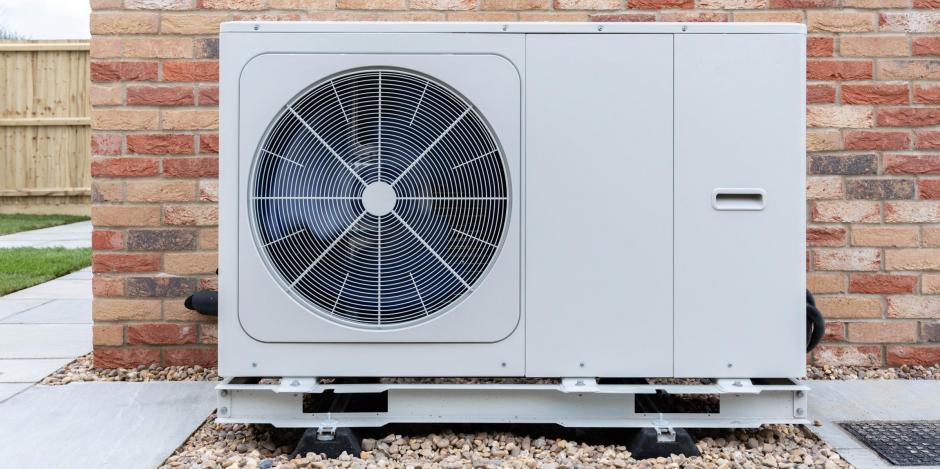
Heat pumps have grown in popularity throughout the Providence area in recent years because of their all-electric, energy efficient heating and cooling capabilities. However, sizing and installation are just as important with any HVAC upgrade as the equipment itself. If your heat pump is too big or small for your home, it won’t operate at peak efficiency. This means you won’t get to enjoy all of the benefits they can provide, like lower energy bills and increased comfort.
At CARJON, we’ve been in the HVAC business since 1989 and follow certain rules when installing a heat pump—here’s a look into what that entails.
How Heat Pumps Work
Heat pumps move heat from one place to another, instead of creating it. This is part of what makes them so energy efficient, along with their all-electric operation. When compared to furnaces and baseboard heaters, heat pumps use significantly less energy and can reduce electricity usage by up to 50%, according to the Department of Energy.
Types of Heat Pumps
We install ducted and ductless mini split heat pumps, both of which have their own unique set of benefits.
Ducted Heat Pumps - These heat pump systems utilize the same ductwork as your existing forced air heating system or central AC.
Mini Split Heat Pumps - Instead of connecting to a duct system, ductless mini splits have individual indoor units—or air handlers—in different areas of your home. Each handler can be set to their own temperature, offering maximum comfort for everyone in your family.
Why Right-Sizing Matters
Improperly sized HVAC systems of any kind are prone to several issues. When your heat pump is too big for your home, it will short cycle—or turn off and on repeatedly—causing more wear and tear and high energy bills. If your system is too small on the other hand, it will work overtime and struggle to keep your home comfortable. The best way to determine the size heat pump you need is to work with a professional HVAC installer, like CARJON.
Factors We Consider When Right-Sizing a Heat Pump
At CARJON, we look at several aspects of your home and its performance when determining the right size heat pump. We do Manual J load calculations of your home, which takes into consideration:
Climate - The number of heating and cooling days in your area makes a difference when it comes to right-sizing a heat pump. In the Providence area, we experience all four seasons to their full potential—but don’t worry, today’s heat pumps can work well in cold climates too!
Home Size - The square footage of your home will obviously make a difference in what size heat pump you’ll need, but we also look at the layout, room distribution, and if your home has an existing duct system to find the right heat pump for you.
Insulation Quality - Your home’s thermal envelope plays a crucial role in determining your heat pump size. If your home is losing energy to poor insulation and air leaks, it won’t run as efficiently and could require a larger system.
Windows - The amount of windows your home has, where they’re placed, and their efficiency will help our team find the right heat pump size for your home. Windows can be a huge source for energy loss, so we recommend getting them checked prior to your heat pump consultation.
Number of People - Everyone in your home produces heat which also needs to be accounted for when sizing an HVAC, especially a cooling system like a heat pump.
Temperature Preferences - Making sure you stay comfortable is one of the most important parts of heat pump installation. Before we determine what size heat pump you’ll need, we’ll ask what your ideal temperature settings are.
Heat Generating Appliances - Just like people, there are several appliances that create heat inside of your home. We take your clothes dryer, stove, and other appliances into consideration when right-sizing any HVAC system.
Call CARJON, Your Local Heat Pump Installers in Providence
If you’re looking to upgrade your home’s HVAC with a heat pump, give our team a call. We can even help you find and qualify for incentives on your upgrade, including Inflation Reduction Act heat pump tax credits of up to $2,000 and Rhode Island Energy rebates.
Don’t forget about maintenance! Regular tune ups are crucial to keeping your new heat pump working as efficiently as possible throughout its lifespan (which is an average of 15 years!). CARJON makes taking care of your heat pump easy with our comprehensive maintenance agreements. We offer three different options that can fit in any budget, offering tune ups, discounts, and more!




